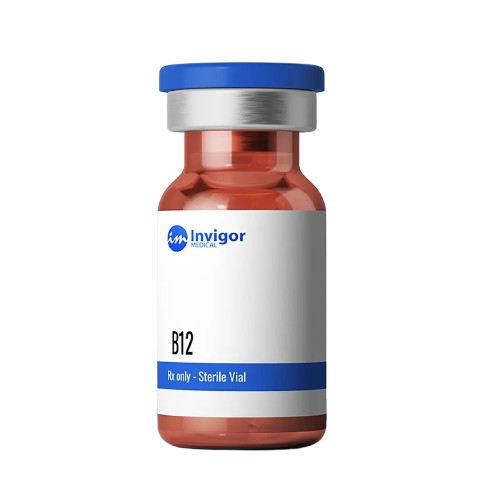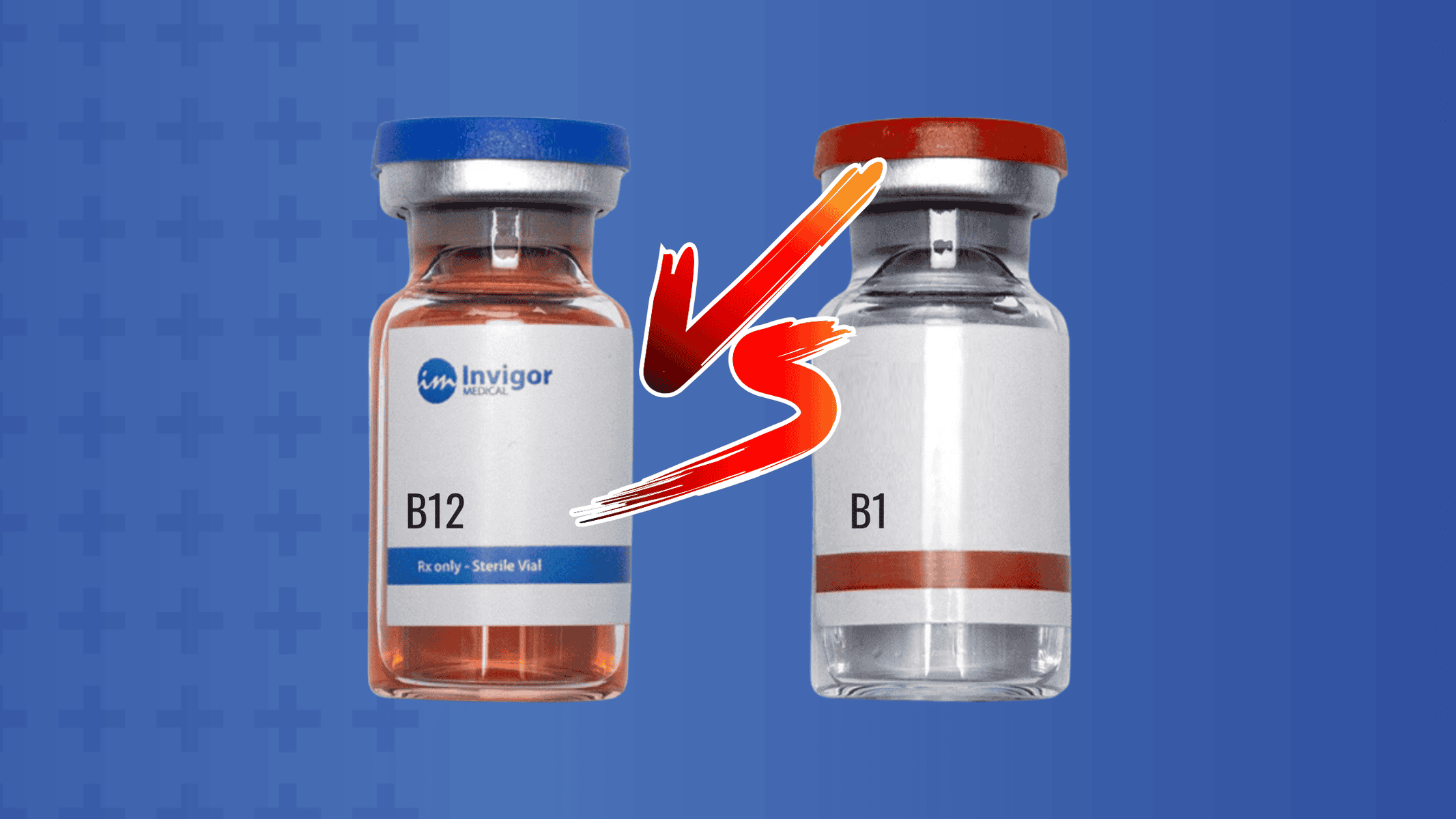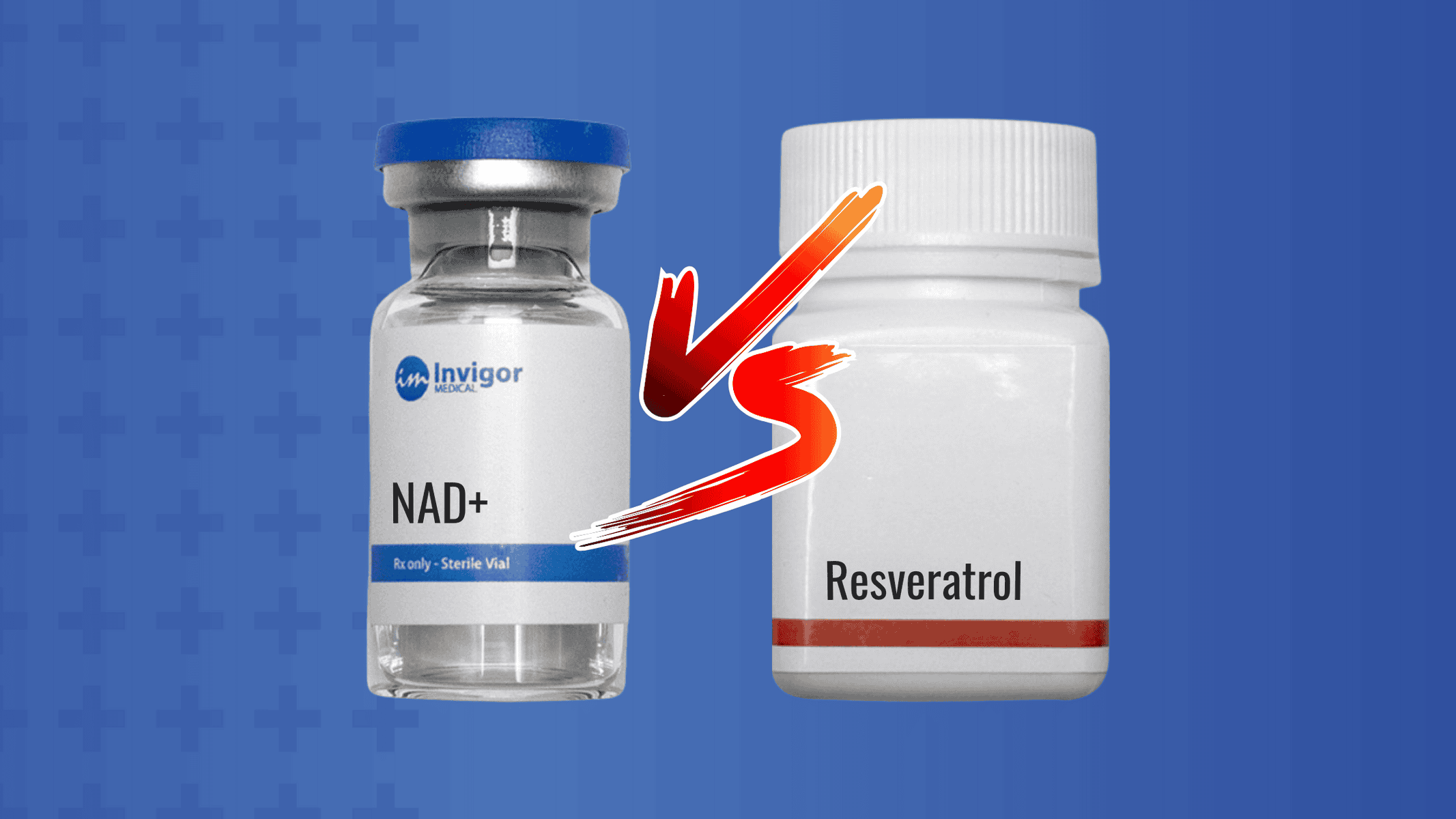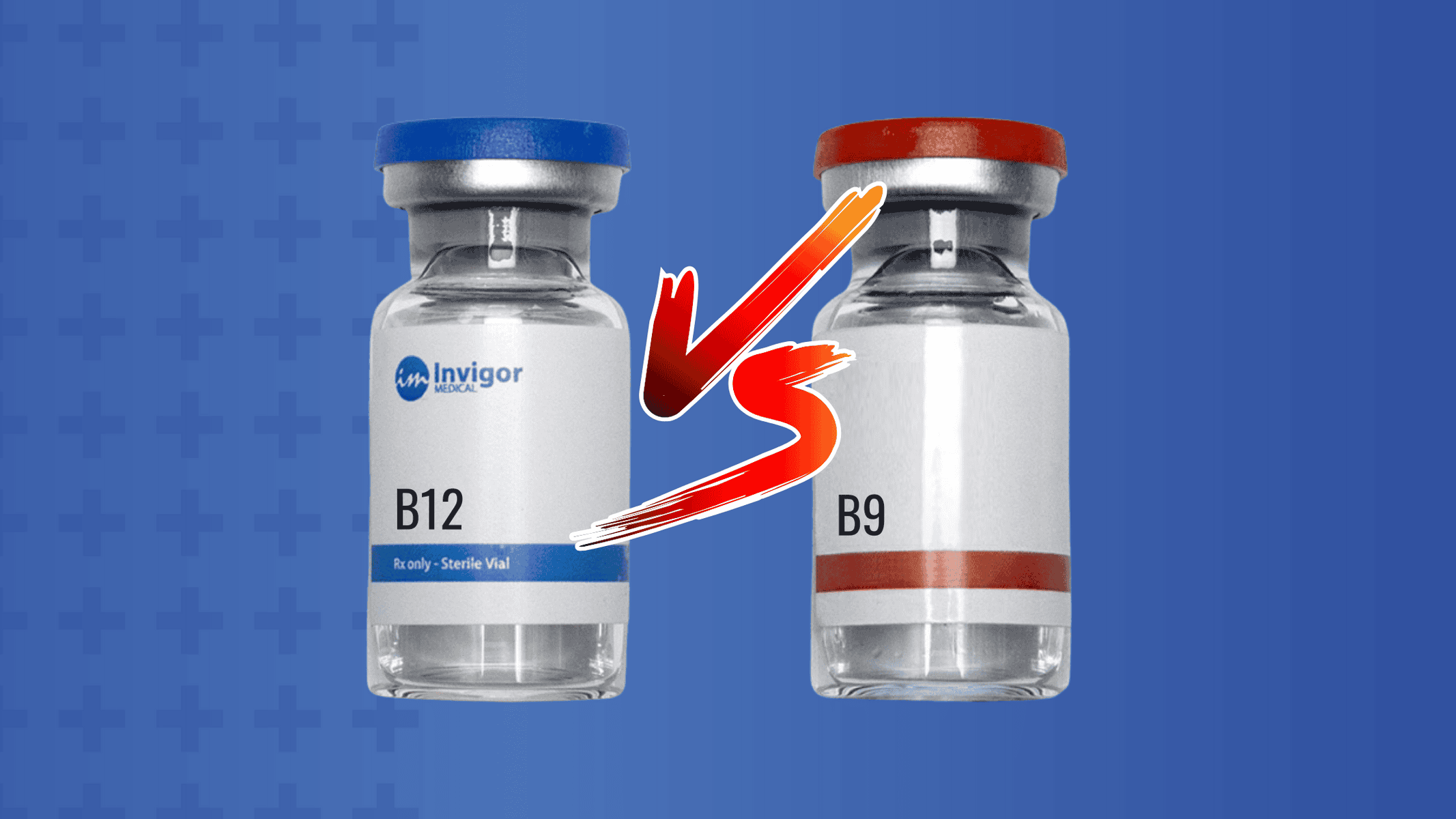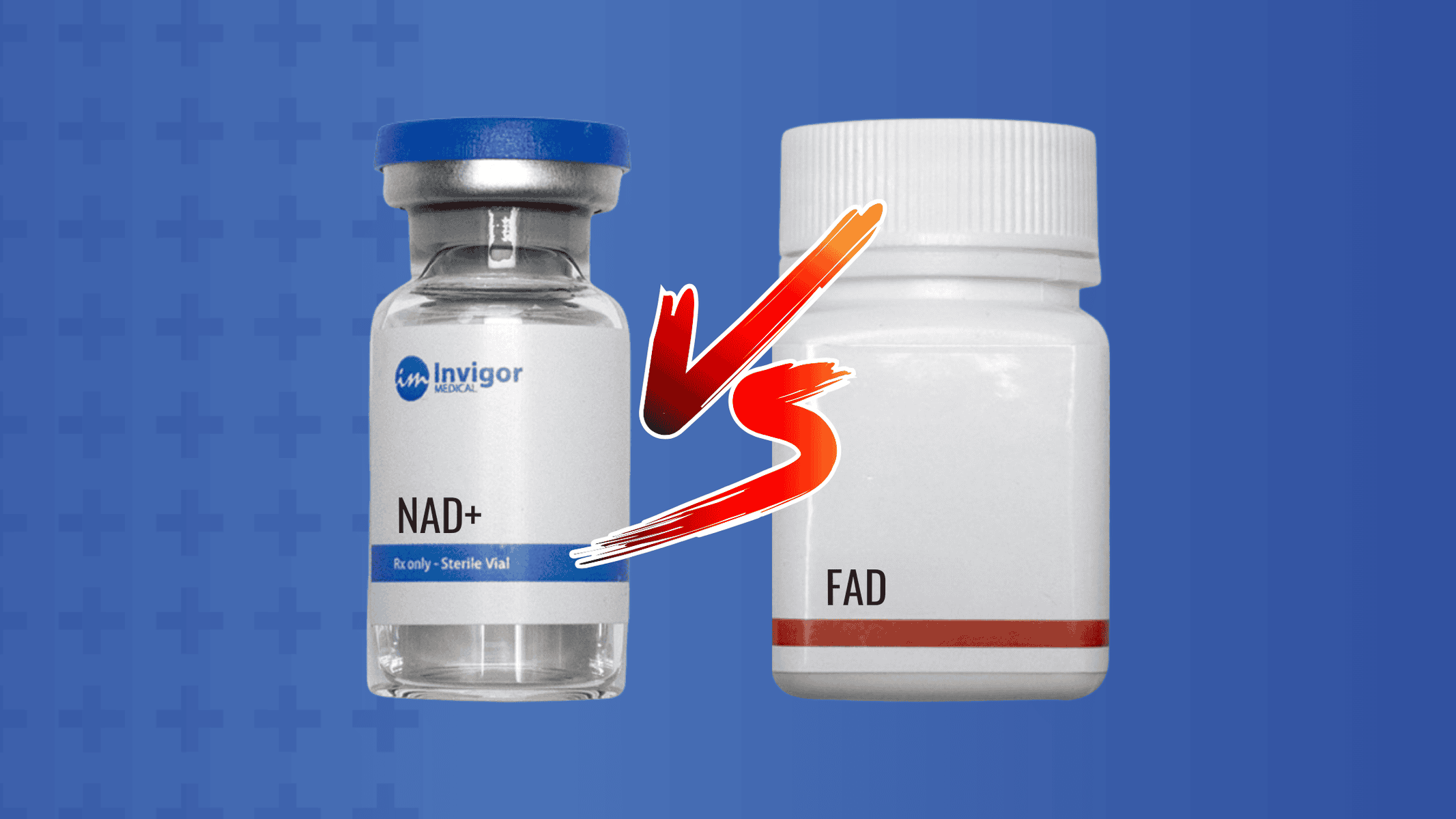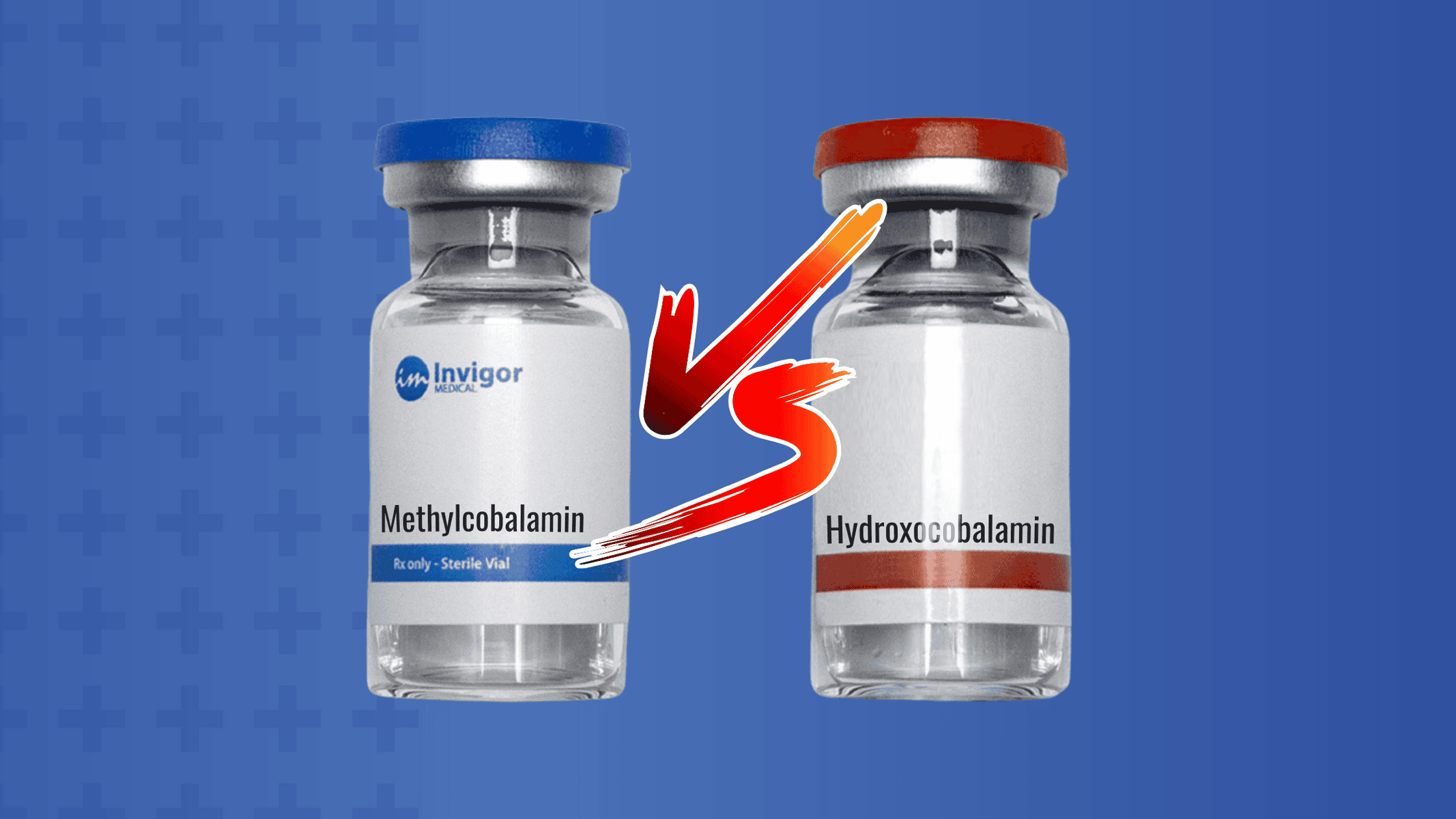Have you been extra tired lately? Have you noticed a lack of concentration, bouts of constipation, balance troubles, and/or memory loss? If so, you might consider speaking with your doctor. There could be a possible connection between your lower energy levels and low levels of vitamin B12. Prompt attention to these symptoms could improve your quality of life. If you are among the growing community of people who have been diagnosed with a vitamin B12 deficiency, you will want to discuss what form of vitamin B12 supplements would be best for you and in what amounts. Doctors often prescribe a B12 injection dosage because of the ease of absorption.
Table of Contents
Vitamin B12 – The Fundamentals
Vitamin B12, alternatively known as cyanocobalamin, is a member of the B vitamin family. The B vitamin family consists of eight essential nutrients. Each member of this family of vitamins performs specific and necessary tasks. Vitamin B12 is needed for proper red blood cell formation and aids nerve function. It also plays a part in synthesizing DNA and converting fats into energy. Healthy amounts of vitamin B12 can prevent some cases of megaloblastic anemia, a certain type of anemia characterized by oversized, underdeveloped, and sparse red blood cells. These abnormal cells lower the amount of oxygen that can be transported from the blood to the body’s tissues.

Vitamin B12 in its natural form is connected to protein in the foods that we eat. It can be found in poultry, meat, fish, eggs, milk, and certain fortified cereals and yeasts. Rainbow trout, salmon, and tuna are the next best sources of vitamin B, after beef liver and clams. Absorption of the nutrient is a two-step process.
- In the first step, acid manufactured in the stomach, called hydrochloric acid, detaches vitamin B12 from the protein.
- Second, a stomach-produced protein called intrinsic factor binds with vitamin B12, making it absorbable by the rest of the body.
The amount of vitamin B12 a person needs each day depends on their age:
- Newborns start out requiring 0.4 micrograms (mcg) per day.
- At 7 months into their first year of life, babies need 0.5 mcg.
- For the next three years of life, 0.9 mcg a day is needed.
- Children from the ages of four through eight need 1.2 mcg of vitamin B12.
- Older children aged 9–13 require 1.8 mcg.
- Teenagers 14–18 and adults need 2.4 mcg daily.
- Pregnant teens and women need 2.6 mcg.
- Breastfeeding teens and women require 2.8 mcg each day. (NIH, n.d.)
Symptoms Of Vitamin B12 Deficiency
Vitamin B12 deficiency can cause both physical and neurological symptoms. Physically, low levels of vitamin B12 can cause megaloblastic anemia, fatigue, weakness, constipation, appetite loss, and weight loss. Neurological indicators of low vitamin B12 levels include tingling or numbness in hands and/or feet, dizziness, balance problems, dementia, confusion, memory loss, mouth and tongue soreness, and depression. These neurological issues can occur without anemia and can become permanent if not rectified promptly (NIH, n.d.)

Reasons For Vitamin B12 Deficiency
With a wide range of natural sources, most people get enough vitamin B12 through their diet; however, some individuals are vitamin B12 deficient and may need supplemental vitamin B12. People in the following categories may not get sufficient amounts of vitamin B12 or may not be able to absorb it well:
- Older adults, 50 and up, start to produce less of the hydrochloric acid needed to start the two-step absorption process. Fortunately for this group, most can still absorb vitamin B12 from fortified sources.
- Those who live with a condition called pernicious anemia lack the intrinsic factor needed in the second part of the nutrients two-step process and cannot absorb Vitamin B12. These individuals are usually prescribed vitamin B12 injections.
- Gastrointestinal surgeries such as weight loss surgeries and surgeries where portions of the stomach are removed can decrease the amount of vitamin B12 available for the body to absorb.
- People living with certain digestive disorders, like celiac disease or Crohn’s disease, also have decreased amounts of vitamin B12 that can be absorbed.
- Vegetarians and vegans who do not eat any or eat insufficient amounts of animal proteins may also be vitamin B12 deficient.
- Those who drink large amounts of alcoholic beverages.
People in these categories are typically the ones prescribed vitamin B12 injections. For these individuals, the correct vitamin B12 injection dosage can greatly improve their health. While high doses of oral vitamin B12 may be effective, doctors typically treat vitamin B12 deficiency with injections because this method bypasses potential barriers to absorption. The number one deciding factor between intramuscular injections and oral administration is the patient’s ability to absorb vitamin B12. When determining the proper vitamin B12 injection dosage, decisions vary based on why the vitamin B12 injection is needed.
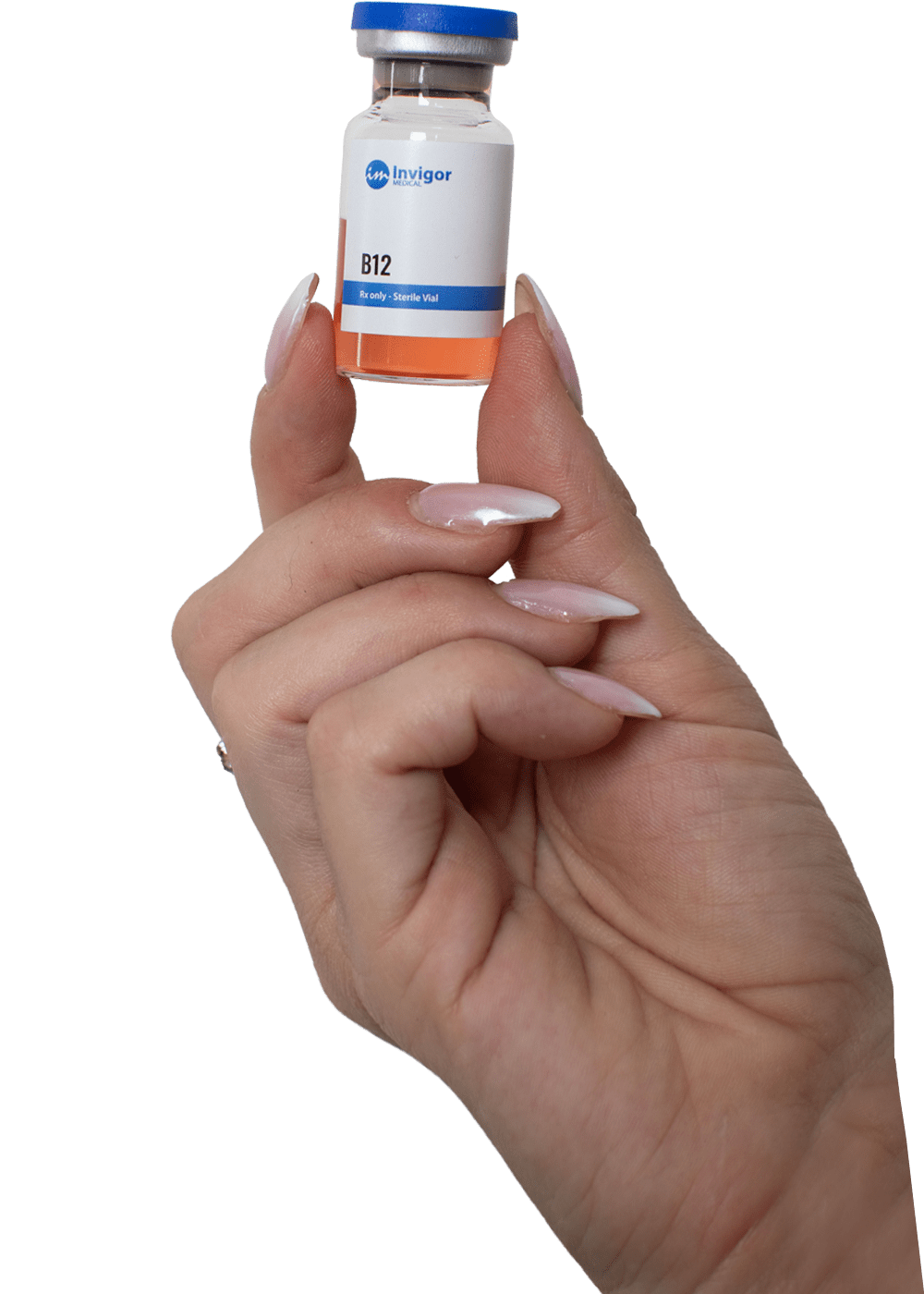
Schilling Test, Its Phases, and Its Role in Determining Vitamin B12 Absorption
Historically, once doctors confirmed a vitamin B12 deficiency, they often performed a procedure called the Schilling Test to determine the cause. Although it is rarely used today—largely because radiolabeled cobalamin is no longer available—the Schilling Test remains an important concept for understanding how the body absorbs vitamin B12 (Ramphul & Mejias, 2020).
Preparation for the test included avoiding intramuscular B12 injections for three days prior and fasting (water only) for about eight hours beforehand. The Schilling Test was typically performed after a patient’s vitamin B12 levels had been restored to normal, and each phase was only conducted if the previous one showed an abnormal result.
Phases of the Schilling Test
Phase 1: Baseline Absorption Test
- The patient received a small oral dose of radiolabeled vitamin B12.
- About one hour later, they were given an intramuscular injection of 1000 mcg of non-labeled vitamin B12 to flush out any unabsorbed B12 from tissue stores.
- Over the next 24 hours, urine was collected and tested to determine how much of the radiolabeled B12 had been absorbed and excreted.
- A low urinary excretion indicated poor absorption.
Phase 2: With Intrinsic Factor
- If absorption was low in Phase 1, the test was repeated — this time with intrinsic factor given along with the oral radiolabeled B12.
- If urinary B12 levels normalized with intrinsic factor, the deficiency was due to pernicious anemia (a lack of intrinsic factor).
- If absorption remained low, another cause was suspected.
Phase 3: With Antibiotics
- If results were still abnormal, a two-week course of antibiotics was prescribed to rule out bacterial overgrowth in the small intestine.
- The test was then repeated. A return to normal absorption after antibiotics suggested bacterial overgrowth was the underlying issue.
Phase 4: With Pancreatic Enzymes
- If absorption remained poor after Phase 3, the final phase involved giving pancreatic enzymes before repeating the test.
- Improved absorption after this step indicated that pancreatic insufficiency was impairing vitamin B12 absorption.
Concurrent Medications May Affect Vitamin B12 Injection Dosage
While most medicines are not affected by supplemental cyanocobalamin, there are fifteen medications that cause some level of interaction with a person’s vitamin B12 dosage.
- aminosalicylic acid (non-specific mild reaction)
- arsenic trioxide
- Used to treat a type of cancer called acute promyelocytic leukemia, this medicine could cause an irregular heart rhythm that might become serious and potentially life-threatening. Vitamin B12 injection dosage might increase the risk of this occurrence. This is because as vitamin B12 replenishes, it can cause low blood potassium, which in turn can also cause irregular heart rhythm. Anyone taking these medications together should talk with their doctor about their concerns. Using both could require dose adjustments and/or more frequent monitoring.)
- chloramphenicol
- This antibiotic (used to treat various bacterial infections such as meningitis, plague, cholera, and typhoid fever) could hinder bone marrow function, which would in turn interfere with the effectiveness of the vitamin B12 injection dosage. The doctor may want to watch these drug interactions a little more closely. Do not hesitate to consult your doctor if symptoms get worse or conditions change.
- cimetidine (non-specific mild reaction)
- dexlansoprazole (non-specific mild reaction)
- esomeprazole (non-specific mild reaction)
- famotidine (non-specific mild reaction)
- lansoprazole (non-specific mild reaction)
- nizatidine (non-specific mild reaction)
- omeprazole (non-specific mild reaction)
- pantoprazole (non-specific mild reaction)
- potassium chloride (non-specific mild reaction)
- rabeprazole (non-specific mild reaction)
- ranitidine (non-specific mild reaction)
- ranitidine bismuth citrate (non-specific mild reaction) (Drugs.com, n.d.)
As this list indicates, it is important to be proactive about communicating any side effects to your doctor promptly. This list is not meant to be complete or to be used for self-diagnostic purposes.
Concluding Thoughts
Vitamin B12 is an essential nutrient, naturally found in animal proteins or fortified into cereals or yeasts, and most people can maintain proper levels through their diet. However, for those experiencing symptoms of low vitamin B12 levels, it’s essential to consult with your doctor or healthcare professional to determine the appropriate dosage. When discussing your prescription with your doctor, ensure they are aware of all your medications and symptoms.
To obtain your vitamin B12 injection dosage from a trusted source, consider Invigor Medical, a US-based pharmacy known for excellent compounding with a strong focus on customer health. When you buy Vitamin B12 through Invigor Medical, you can have confidence in the quality and reliability of your medication.

